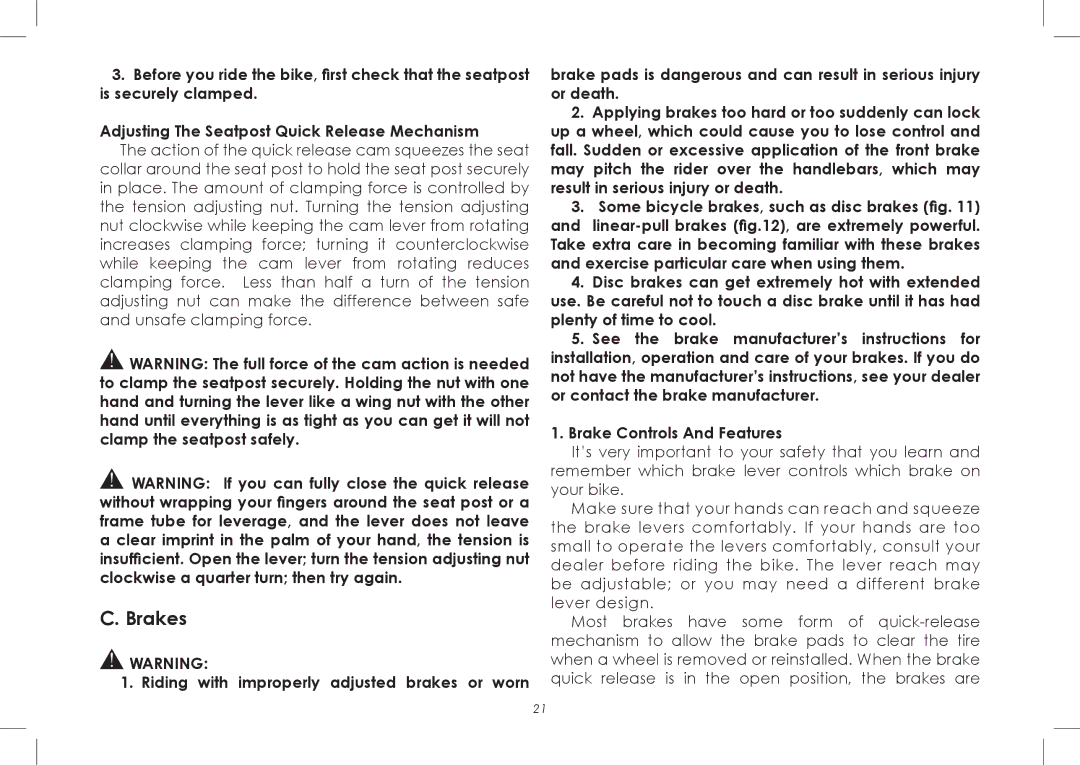
3.Before you ride the bike, first check that the seatpost is securely clamped.
Adjusting The Seatpost Quick Release Mechanism
The action of the quick release cam squeezes the seat collar around the seat post to hold the seat post securely in place. The amount of clamping force is controlled by the tension adjusting nut. Turning the tension adjusting nut clockwise while keeping the cam lever from rotating increases clamping force; turning it counterclockwise while keeping the cam lever from rotating reduces clamping force. Less than half a turn of the tension adjusting nut can make the difference between safe and unsafe clamping force.
!WARNING: The full force of the cam action is needed to clamp the seatpost securely. Holding the nut with one hand and turning the lever like a wing nut with the other hand until everything is as tight as you can get it will not clamp the seatpost safely.
!WARNING: If you can fully close the quick release without wrapping your fingers around the seat post or a frame tube for leverage, and the lever does not leave a clear imprint in the palm of your hand, the tension is insufficient. Open the lever; turn the tension adjusting nut clockwise a quarter turn; then try again.
C. Brakes
!WARNING:
1.Riding with improperly adjusted brakes or worn
brake pads is dangerous and can result in serious injury or death.
2.Applying brakes too hard or too suddenly can lock up a wheel, which could cause you to lose control and fall. Sudden or excessive application of the front brake may pitch the rider over the handlebars, which may result in serious injury or death.
3.Some bicycle brakes, such as disc brakes (fig. 11) and
4.Disc brakes can get extremely hot with extended use. Be careful not to touch a disc brake until it has had plenty of time to cool.
5.See the brake manufacturer’s instructions for installation, operation and care of your brakes. If you do not have the manufacturer’s instructions, see your dealer or contact the brake manufacturer.
1.Brake Controls And Features
It’s very important to your safety that you learn and remember which brake lever controls which brake on your bike.
Make sure that your hands can reach and squeeze the brake levers comfortably. If your hands are too small to operate the levers comfortably, consult your dealer before riding the bike. The lever reach may be adjustable; or you may need a different brake lever design.
Most brakes have some form of
21
